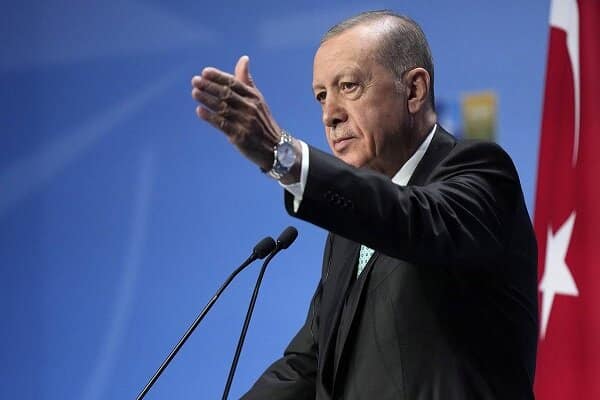Erdogan’s sudden change of position towards Ocalan; containment of the Syrian Kurds on the agenda.
These days, most of the media and political circles in Turkey are once again talking about peace and negotiations. It is said that the ultimate goal of these negotiations is to disarm the terrorist group “PKK” (PKK) and end the long-term conflict that began in 1984 and is still ongoing. However, political analysts are skeptical about this issue and believe that the timing of Erdogan’s new decision is closely related to the political developments in Syria. In the past few decades, the PKK and the Turkish government have repeatedly stepped on the path of negotiations and ceasefires, but the talks have not reached a clear result.
The Suzcu newspaper, Turkey’s most widely circulated newspaper, announced that Öcalan sent a message to Erdogan through two Kurdish representatives and announced that the government needs to release 4,500 prisoners who are members or supporters of the PKK as a first step. However, Ahmet Hakan, editor-in-chief of the Ankara-based Hurriyet newspaper, denied this and considered it an unfounded rumor. Meanwhile, Abdulkadir Selvi, a well-known analyst close to Erdogan, has also stated that the PKK’s political and military officials and commanders in the Qandil Mountains are not willing to comply with Öcalan’s demands and consider disarmament a dangerous issue whose preconditions must be met in advance.
Erdogan’s sudden turn on Assad and Öcalan
Recep Tayyip Erdogan, the Turkish President and leader of the Justice and Development Party (AKP), is a politician whose political turns are often quick and sudden. Until just two months ago, Erdogan repeatedly insisted that he wanted to welcome Bashar al-Assad in Istanbul or Ankara and return Turkish-Syrian relations to normal. He also said in response to reporters’ questions about the possibility of resuming peace talks with the PKK that the Turkish army’s attacks on this terrorist group would continue with full force and that the government had no goal other than to eliminate this group. But after a while, at the suggestion of his political partner, Devlet Bahçeli, leader of the far-right Nationalist Movement Party (MHP), Erdogan allowed the media to comment on the possible conditions for Öcalan’s release.
A few months ago, Erdogan announced in an interview with the television channel (A HABER) that there is no such thing as a “Kurdish problem” in Turkey and that whatever there is is a “terrorism problem” that must be solved by force. Erdogan also used a newly coined word, using the word “Kurdistan” as an analogy, and said about the political structure of the Kurds in northern Syria: “We will not allow a terrorist state to form near our border.” But now, with a 180-degree turn, it has been announced that on January 11th and 12th, he will address the people of the two Kurdish cities of Diyarbakir and Şanlıurfa, and will share with the people the plans of his party and government to address the demands of the Kurds.
After the recent developments in Syria, Erdogan immediately supported the terrorist organizations Hayat Tahrir al-Sham and Golani, and two members of parliament were sent to Emirati prison to meet with Abdullah Ocalan. The two-member delegation that met with Ocalan in the Emirati prison were Parvin Boldan and Sari Soraya Onder, representatives of the Democracy and Equality Party (DEMPARTI). They had already read Ocalan’s message to the people and the media to end armed activity at the Newroz ceremony in Diyarbakir in 2013, but it wasn’t long before the war and conflict resumed. Therefore, there is no guarantee that a clear result will be achieved this time.

